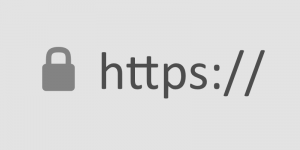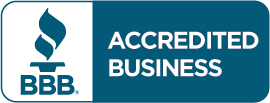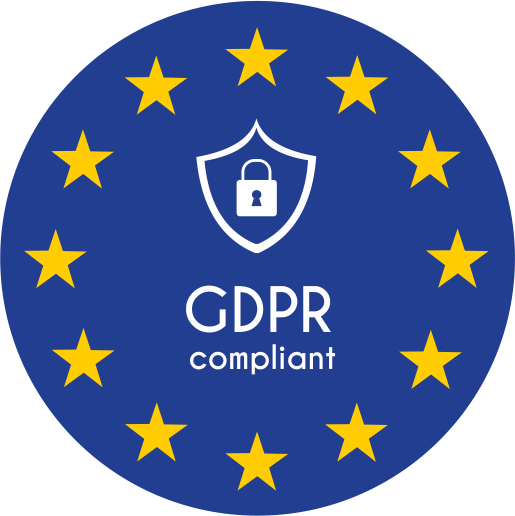by Charles Oropallo | Nov 27, 2019 | Internet, Monadnock Shopper News, Shopper News, The CW Corner, Website Development, Website Updates
Along with all the many scams out there on the Internet are what I’d call the “inflated monthly maintenance plans”.
 Are you paying expensive maintenance fees?
Are you paying expensive maintenance fees?These are usually fixed monthly pricing plans that include hosting and website maintenance. Such plans are touted as providing the business owner with a means to budget ongoing website maintenance, so-to-speak.
I’ve seen many of these offerings since 1998. I’ve also spoken with many website owners who have had such plans. They’re almost never advantageous to the business owner.
In most cases, business website owners had paid up to several hundred dollars a month for these plans – for many years in some cases. Most never had any work done to their websites. Those who did have work done indicated it was far less value than they had paid for with their “budget”.
Put specifically in dollar terms, some had paid thousands of dollars for only about a hundred dollar’s worth of web updates over time. For that reason I highly recommend businesses avoid such plans.
In short, be very careful about doing business with web companies or web developers that want to sell you these inflated monthly maintenance plans. Paying for website work on an as-you-need-it basis will almost always cost you much, much less in the long term.










by Charles Oropallo | Nov 13, 2019 | Do-It-Yourself, Internet, Monadnock Shopper News, SEO, Shopper News, The CW Corner, Website Development, WordPress
I’ve mentioned SEO (Search Engine Optimization) throughout many articles. While it is important – I believe it’s the most abused area of website development.
 SEO scammers are excellent liars!
SEO scammers are excellent liars!It’s important for your business website to be found in the search engines. That is best and most inexpensively done by having pertinent material in your website so the search engines see your website as pertinent or closely related to a topic.
There are many unscrupulous individuals and companies out there selling just plain bogus SEO. It’s often impossible to discern the truth. There are no regulations or meaningful certifications in this field.
As an example – let’s say you receive a dozen Viagra spam messages in a month. Does that mean you need it? Certainly just because a number of spam messages are saying you need something doesn’t turn it into a fact.
Why would you believe the same about SEO regarding your search placements on the Internet? Our web clients are bombarded with spam and with phone calls saying they need this and that for their websites. Some fall prey to these sales pitches and some even go out of business as a result of spending hundreds of dollars each month on scams.
Your web developer should care about you as a client – should want you to be as successful as possible and not up-selling you right out of business.
The worst part of the SEO scams is they can oftentimes hurt your placement with the search engines.
Don’t fall prey to the scamsters selling these bogus “services”. Check with your web developer FIRST about such offers to find out if they are for real or whether you actually need them.










by Charles Oropallo | Oct 30, 2019 | Email, Internet, Monadnock Shopper News, Shopper News, The CW Corner
It’s Halloween time again so I thought I’d mention Halloween Spoofs! Well, actually email spoofing happens year round.
 An example of spoofing is when emails are sent that are addressed from you (and maybe to you) but you didn’t send them. In that case your address has been “spoofed”.
An example of spoofing is when emails are sent that are addressed from you (and maybe to you) but you didn’t send them. In that case your address has been “spoofed”.
Spammers and scammers alike do this. There are a couple reasons it’s done.
Sometimes it is malicious. Let’s say someone goes onto numerous websites to sign up for information as XYZ Company. So a ton of spam is sent to XYZ. XYZ finds itself barraged with email and phone spam – wasting lots of their time.
More often XYZ is spoofed to appear to be the sender of spam. Folks local to XYZ are more likely to open the spoofed emails. The spam really isn’t from XYZ – just made to look like it is. So recipients think XYZ is spamming them. They’re annoyed with XYZ and report them as spammers and complain and so on.
Fortunately, spoofing doesn’t account for most Internet issues. It just makes life miserable for XYZ – the target – for a while.
The good news is that usually spoofing usually only lasts a few days. The actual sending server is identified and blocked or shut down.
Always report these issues to your email administrator. Early intervention saves lots of headaches in the long term.










by Charles Oropallo | Oct 16, 2019 | Do-It-Yourself, Domains, Internet, Monadnock Shopper News, Shopper News, The CW Corner, Website Development
Two components of a website are the domain and hosting. Websites are accessed easiest with these.
Domain names are labels typed into web browsers that point to a particular website. Usually they’re a word or words pertinent to the website. Each domain is unique. There can only one of each in the world.
Hosting is a server space for a website. It’s available 24-7 for anyone anytime it is accessed. Websites usually contain coding that shows what the site visitor would view as a website.
Finally, the website coding can reside in the hosted web space. That’s what makes the site appear. Or the coding may just jump off (redirect) to go to a different address.
My favorite analogy is to a house. There’s an address (domain name). It’s rented each month (hosting) so one can show off its furniture (web coding). It doesn’t matter whether there’s a little or lots of furniture – they pay rent (hosting).
 No Written Hosting or Domain Contracts Required at CharlesWorks
No Written Hosting or Domain Contracts Required at CharlesWorksDoes your web company require hosting or domain contracts? Reputable ones won’t. They’re willing to ALWAYS provide the best service to you instead of just before contract renewals.
Contact your hoster to determine whether they’ve locked you in or you’re free to move where you can get the best service.










by Charles Oropallo | Oct 2, 2019 | Internet, Monadnock Shopper News, Security, Shopper News, The CW Corner, Website Development
Website visitor safety is extremely important. I’ve mentioned terms here before like SSL, encryption, security and so on.  These involve that little green or grey lock in front of the web address in your browser. Clicking on that tells you whether the encryption is valid and what site it’s issued to.
These involve that little green or grey lock in front of the web address in your browser. Clicking on that tells you whether the encryption is valid and what site it’s issued to.
Providing encryption was traditionally expensive for website operators. However, it can be had for free these days. There’s no reason not to have it.
Encryption refers to a method on website servers that helps ensure you are actually on the website you think you are on. This greatly reduces the risks of fraud.
Ripping you off is a top priority for many nefarious individuals and organizations on the web. One method is tricking you into giving your credit card or other personal information on a “fake” site or web page. These pages often look exactly like those of your bank’s or credit card company’s or even your email’s login pages.
There’s usually a small one-time charge for initial setup. Website owners should check with their hosting company or web developer to ensure website encryption (SSL) is included in their monthly hosting at no extra charge. If need be, it’s worthwhile to move to a company whose hosting provides this.












 An example of spoofing is when emails are sent that are addressed from you (and maybe to you) but you didn’t send them. In that case your address has been “spoofed”.
An example of spoofing is when emails are sent that are addressed from you (and maybe to you) but you didn’t send them. In that case your address has been “spoofed”.
 These involve that little green or grey lock in front of the web address in your browser. Clicking on that tells you whether the encryption is valid and what site it’s issued to.
These involve that little green or grey lock in front of the web address in your browser. Clicking on that tells you whether the encryption is valid and what site it’s issued to.


 European Union General Data Protection Regulation Compliant
European Union General Data Protection Regulation Compliant